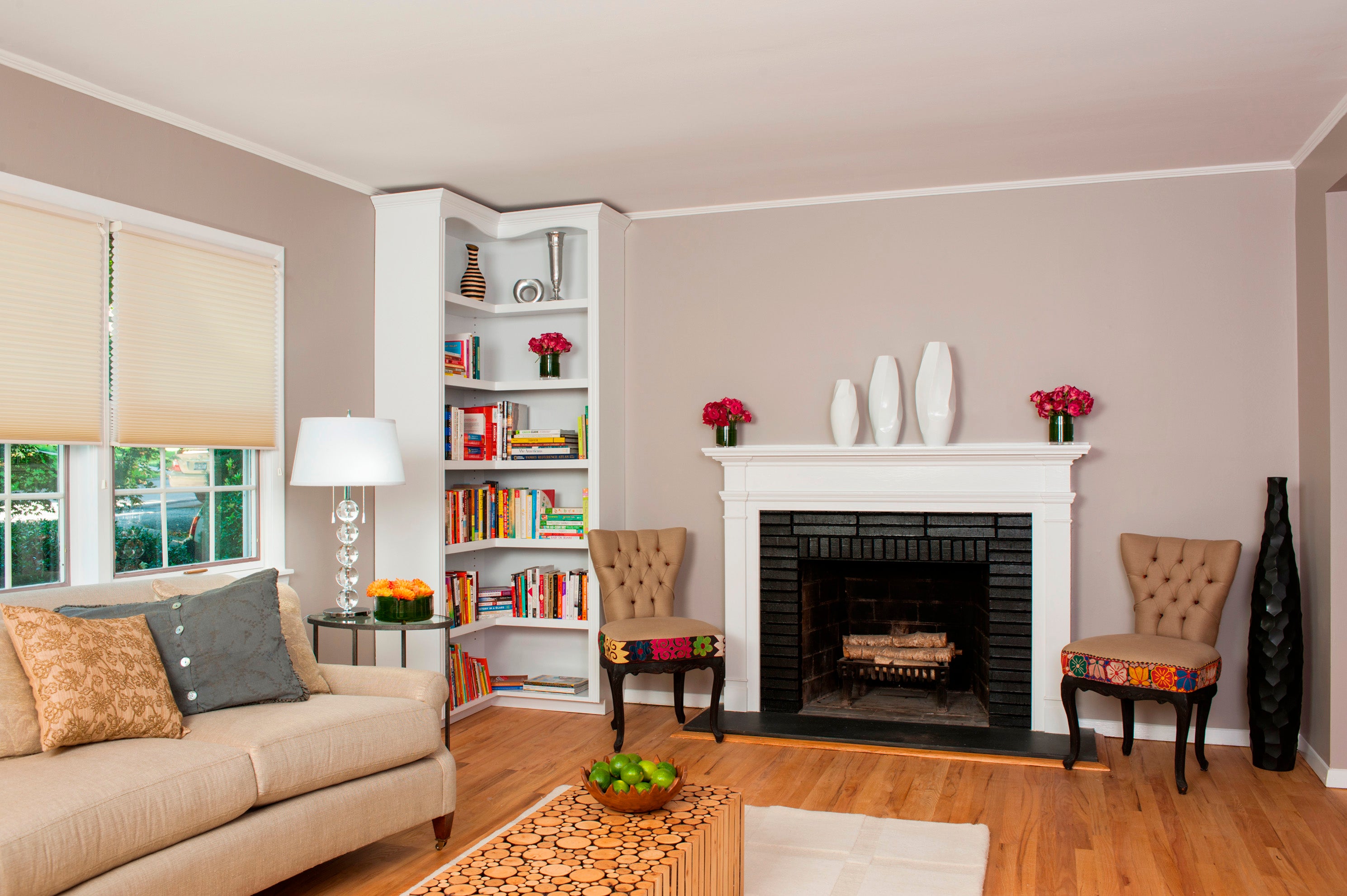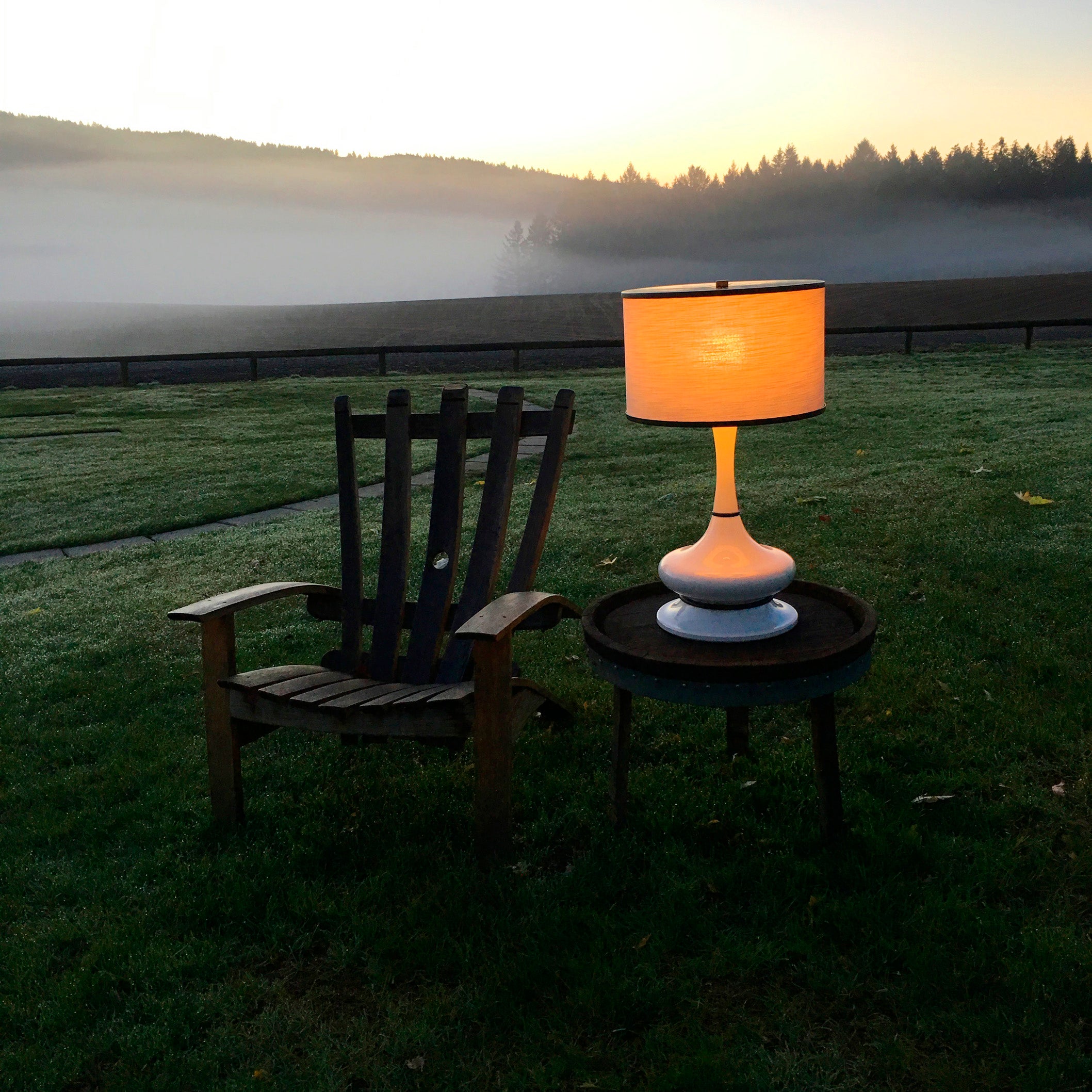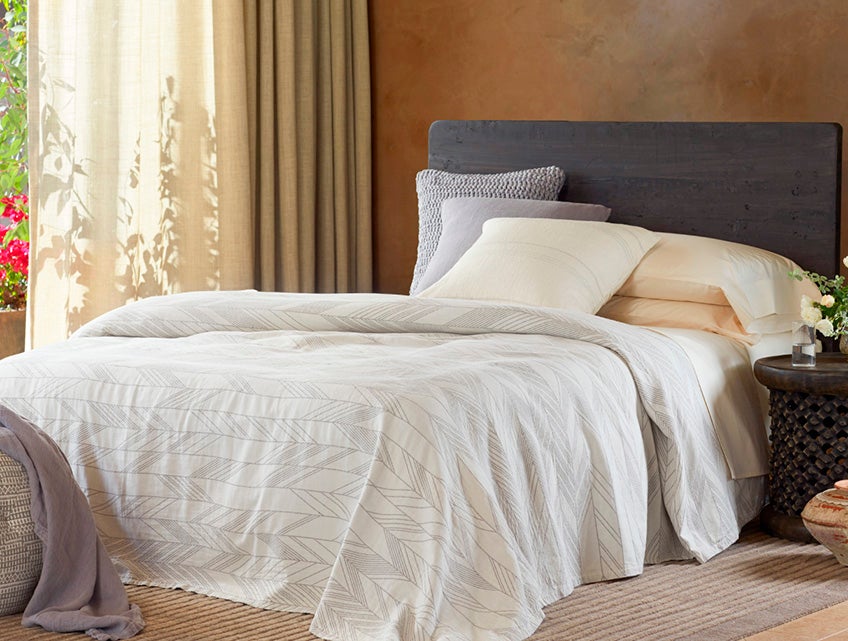Use these simple fixes to preserve the environment while upgrading your decor.
For leading interior designer Robin Wilson, a hard rule when designing is to use paints with low to no volatile organic compounds (VOC), to minimize toxins. She recommends the Aura and Natura lines of Benjamin Moore and Behr Marquee, respectively. “Both brands have great coverage and built-in primers, so it’s a little less labor,” notes Wilson. To help further keep toxins out of the air in your home, Wilson suggests decorating with plants. These natural air purifiers can do double duty as humidifiers (the Boston fern is a good example) and can minimize allergies (thanks, spider plants!). Many houseplants are also low-maintenance and tend to be smaller in size, so you can place several around your residence.
Anywhere. luxury energy-efficient lamps, including the one pictured here. She also advises adding dimmers, like those sold by Lutron (available at amazon.com and Home Depot), to help extend the life of your bulbs. “Add task lights or a table lamp to your work surface so you don’t use all your lights while in one particular area,” Allen adds.
Heating and cooling can account for 48 percent of the energy we use at home and is often our largest energy expense, according to the Department of Energy. While avoiding a monthly electric bill altogether isn’t possible, interior designer Courtney Sloane believes lowering energy consumption is a powerful start.
Decorating with insulated curtains helps stop drafts during cold months and blocks the sun in the height of summer. Try Thermalogic Weathermate (walmart.com). Smart thermostats like Nest, the Honeywell Lyric and Ecobee also drive down costs by allowing you to control temperatures remotely and automatically. “There’s a smarter look to them that makes the space more interesting design-wise,” Sloane adds.
A large part of a product’s carbon footprint is determined by how far it has to travel to get to you. By buying locally and choosing products made in the USA, you lessen your impact on the environment exponentially. Also, purchasing goods from brands committed to creating a nontoxic living space such as Robin Wilson Home and Coyuchi, which provides ethically produced, 100 percent organic cotton bedding, makes staying green easier. Go to americansworking.com and sustainablefurnishings.org for a list of environmentally benign brands.






